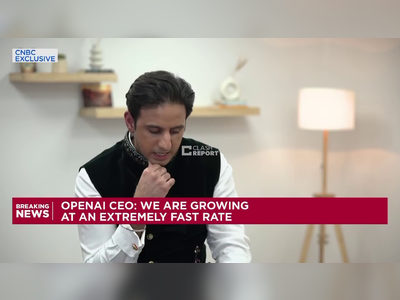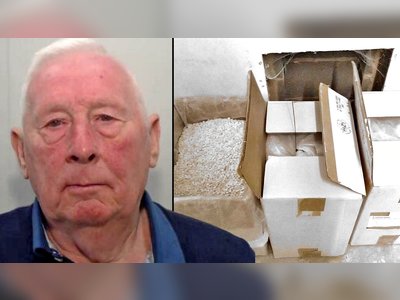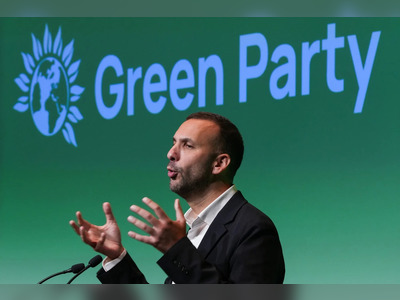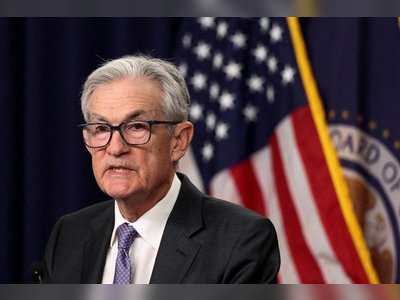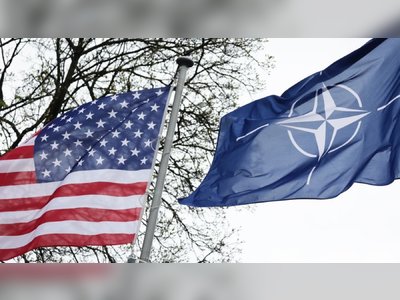
Legal Developments Surrounding Patrice Pastor and the Dossiers du Rocher
Claims of Forged Documents in High-Profile Investigation and Real Estate Mogul's Legal Battle Intensify
Recent investigations into the Dossiers du Rocher, a significant leak of private documents linked to high-profile figures in Monaco, have taken a new turn.
Claude Palmero, the former administrator of the Crown's assets, was subject to a search by public safety investigators on July 19, 2023, at the Prince's Palace.
During this search, officers discovered a conspicuous yellow dossier allegedly containing corporate statutes and banking documents, including purported transfer slips from a Wells Fargo agency in California linked to a bank account in the name of Esperanza Carmel.
This has prompted speculation connecting real estate mogul Patrice Pastor, who owns several companies named Esperanza, to the massive leak of documents that surfaced in late 2021, potentially damaging close associates of the Prince, including Palmero himself.
Pastor's attorney, Me Antoine Vey, asserts that the documents in question are forgeries intended to mislead both journalists and judges to harm Pastor's reputation.
These accusations also encompass ongoing investigations in France and Monaco related to the origins of the document leak, which stemmed from a cyberattack on the email of Me Thierry Lacoste, a former associate of the Prince who has since filed a complaint.
Palmero is now facing the possibility of being embroiled in counter-allegations, with Vey claiming to gather evidence for a suit against him for 'forgery and use of forgery'.
The Monegasque authorities previously attempted to verify the authenticity of the documents through international legal channels, but initial requests were reportedly too broad to yield results.
Consequently, the investigation was divided into two separate inquiries with a renewed approach to the U.S. legal system.
As a strategic move, Pastor initiated his action against Wells Fargo to access records.
Last week, Wells Fargo's response confirmed that neither Pastor directly nor indirectly held any accounts with the bank.
This statement, reportedly signed by a bank employee, carries the weight of potential perjury if proven inaccurate.
This disclosure has seemingly narrowed the path toward unraveling the origins of the yellow dossier.
The situation has prompted Palmero's attorney, Me Marie-Alix Canu-Bernard, to express doubts about the motivations for the timing of the bank's response, suggesting the lengthy delay was puzzling.
She indicated that the documents had been, at one point, submitted for judicial examination in the Dossiers du Rocher investigation.
In light of these developments, Vey has indicated plans to request Monegasque authorities to investigate how Palmero came into possession of these supposed false documents, aiming to trace their origin and ascertain their use in the judicial process.
According to Vey, this scenario reflects a broader context of document fabrication and espionage involving monitoring of prominent Monaco residents, including Pastor, potentially funded by princely resources.
In a related sporting development, French national team striker Wissam Ben Yedder has signed with Sepahan SC, a club based in Iran, after departing AS Monaco amid legal troubles.
The 34-year-old, who was recently convicted of sexual assault with a two-year suspended sentence, is now seeking to relaunch his career with Sepahan, which has been bolstered by several players with ties to French football.
Furthermore, in U.S. politics, a recent judicial election in Wisconsin saw Democratic candidate Susan Crawford secure a seat on the state Supreme Court, with implications for Republican influence.
The election has garnered significant attention, particularly due to the involvement of billionaire businessman Elon Musk and President Donald Trump's endorsements of Crawford's opponent.
Crawford's victory marks a notable shift, raising concerns among Republicans regarding potential impacts on legislative redistricting in favor of Democrats in upcoming elections.
The financial stakes in the Wisconsin race were significant, reportedly amounting to over $98 million, identifying it as one of the most expensive judicial campaigns in U.S. history.
Claude Palmero, the former administrator of the Crown's assets, was subject to a search by public safety investigators on July 19, 2023, at the Prince's Palace.
During this search, officers discovered a conspicuous yellow dossier allegedly containing corporate statutes and banking documents, including purported transfer slips from a Wells Fargo agency in California linked to a bank account in the name of Esperanza Carmel.
This has prompted speculation connecting real estate mogul Patrice Pastor, who owns several companies named Esperanza, to the massive leak of documents that surfaced in late 2021, potentially damaging close associates of the Prince, including Palmero himself.
Pastor's attorney, Me Antoine Vey, asserts that the documents in question are forgeries intended to mislead both journalists and judges to harm Pastor's reputation.
These accusations also encompass ongoing investigations in France and Monaco related to the origins of the document leak, which stemmed from a cyberattack on the email of Me Thierry Lacoste, a former associate of the Prince who has since filed a complaint.
Palmero is now facing the possibility of being embroiled in counter-allegations, with Vey claiming to gather evidence for a suit against him for 'forgery and use of forgery'.
The Monegasque authorities previously attempted to verify the authenticity of the documents through international legal channels, but initial requests were reportedly too broad to yield results.
Consequently, the investigation was divided into two separate inquiries with a renewed approach to the U.S. legal system.
As a strategic move, Pastor initiated his action against Wells Fargo to access records.
Last week, Wells Fargo's response confirmed that neither Pastor directly nor indirectly held any accounts with the bank.
This statement, reportedly signed by a bank employee, carries the weight of potential perjury if proven inaccurate.
This disclosure has seemingly narrowed the path toward unraveling the origins of the yellow dossier.
The situation has prompted Palmero's attorney, Me Marie-Alix Canu-Bernard, to express doubts about the motivations for the timing of the bank's response, suggesting the lengthy delay was puzzling.
She indicated that the documents had been, at one point, submitted for judicial examination in the Dossiers du Rocher investigation.
In light of these developments, Vey has indicated plans to request Monegasque authorities to investigate how Palmero came into possession of these supposed false documents, aiming to trace their origin and ascertain their use in the judicial process.
According to Vey, this scenario reflects a broader context of document fabrication and espionage involving monitoring of prominent Monaco residents, including Pastor, potentially funded by princely resources.
In a related sporting development, French national team striker Wissam Ben Yedder has signed with Sepahan SC, a club based in Iran, after departing AS Monaco amid legal troubles.
The 34-year-old, who was recently convicted of sexual assault with a two-year suspended sentence, is now seeking to relaunch his career with Sepahan, which has been bolstered by several players with ties to French football.
Furthermore, in U.S. politics, a recent judicial election in Wisconsin saw Democratic candidate Susan Crawford secure a seat on the state Supreme Court, with implications for Republican influence.
The election has garnered significant attention, particularly due to the involvement of billionaire businessman Elon Musk and President Donald Trump's endorsements of Crawford's opponent.
Crawford's victory marks a notable shift, raising concerns among Republicans regarding potential impacts on legislative redistricting in favor of Democrats in upcoming elections.
The financial stakes in the Wisconsin race were significant, reportedly amounting to over $98 million, identifying it as one of the most expensive judicial campaigns in U.S. history.

